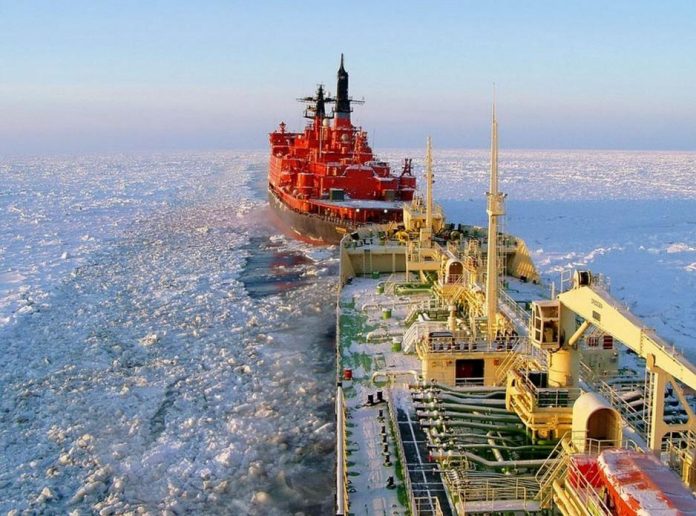Russia and India are advancing discussions on joint shipbuilding projects in the Arctic, according to a press release by Rosatom, bne IntelliNews reports.
Russian company Rosatom announced progress after the first meeting of a working group dedicated to co-operation on the Northern Sea Route (NSR).
The meeting, held in New Delhi, brought together Russian and Indian officials, including Rosatom’s special representative for Arctic development, Vladimir Panov, and India’s Deputy Minister of Ports, Shipping and Waterways, Rajesh Kumar Sinha.
During the talks, the delegations reviewed several key areas of potential co-operation, including the expansion of Russian-Indian cargo transit through the NSR and training programmes for Indian seafarers to sail in polar waters.
Rosatom, which was appointed by the Russian government as the NSR infrastructure operator in 2018, is overseeing the federal project “Development of the Northern Sea Route.” This initiative is part of a broader plan to improve the route as a year-round transport corridor connecting Europe, Russia and the Asia-Pacific region.
The NSR is of strategic importance as it represents the shortest sea link between the western regions of Eurasia and the Asia-Pacific region. The route significantly saves time in cargo transport compared to traditional southern routes.
The company is also actively working on the Great Northern Sea Route project, aimed at creating a permanent and reliable passage that will strengthen Russia’s position as a major player in Arctic logistics.
Environmental risks
India can capitalise on the benefits in the future, especially by increasing cargo transit and maritime training. The agreement will also strengthen bilateral ties in the maritime sector and potentially increase economic activity between the two countries.
However, the development of the NSR raises serious environmental concerns, as the region’s fragile ecosystem is particularly vulnerable to pollution. The risk of oil spills, emissions and other pollutants could cause long-term damage to Arctic marine life.
Environmental groups warn that increased marine activity can disrupt habitats, with the Arctic’s harsh and unpredictable conditions increasing the risk of accidents and oil spills. This complicates disaster response efforts.
Moreover, expanding the NSR could accelerate the melting of polar ice due to greater ship emissions. Critics argue that strong regulatory measures are needed to reduce the risks associated with large-scale commercial shipping through the Arctic.
